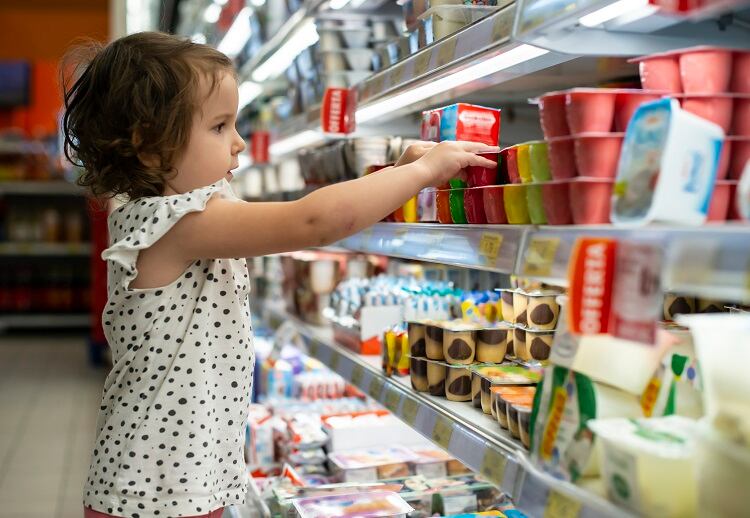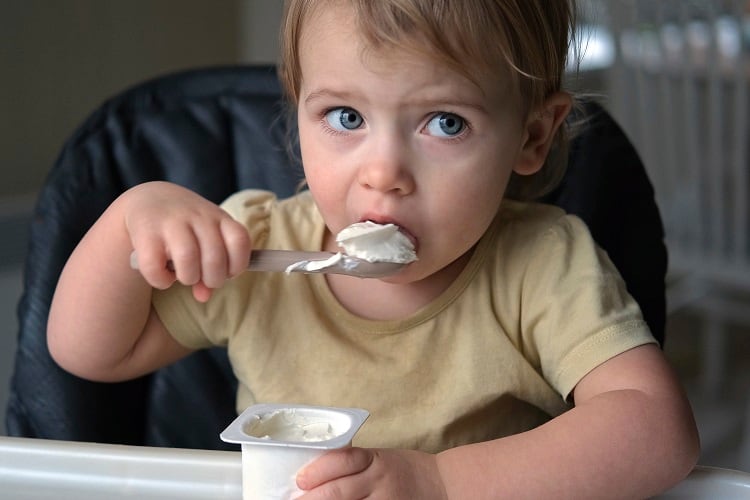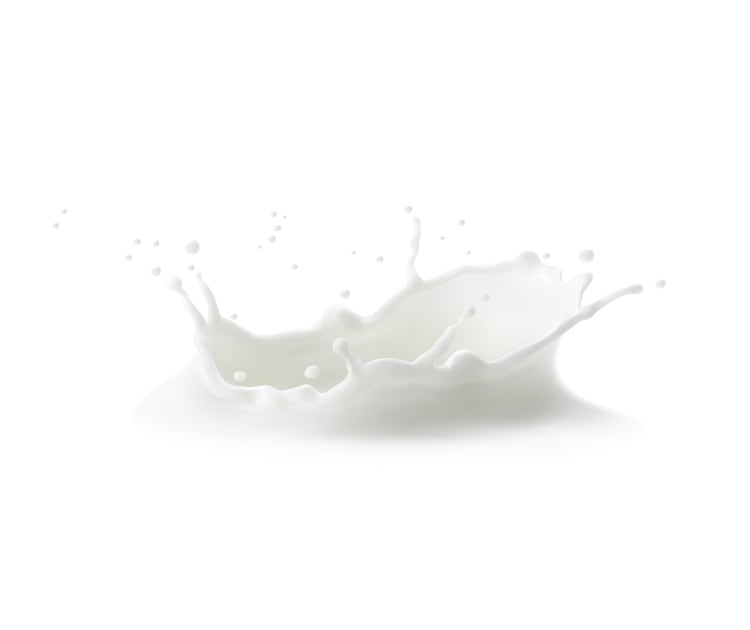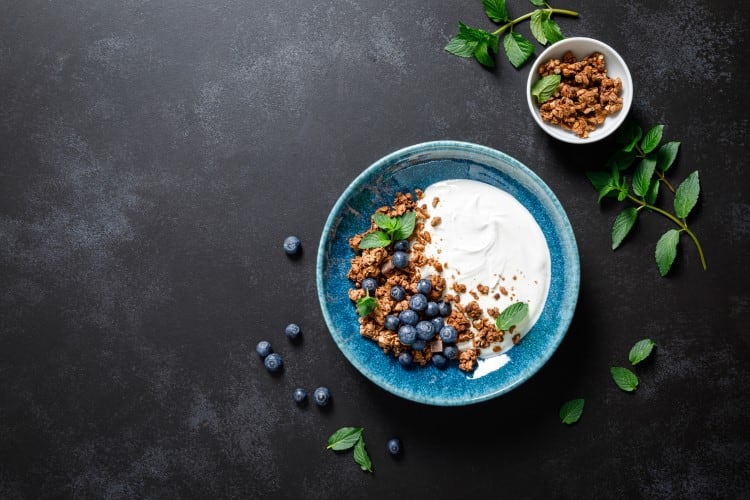Demand for kids’ yoghurt is going off (and not in a good way). According to Kantar data, the last decade has seen yoghurt and fromage frais volume drop 11%, with penetration and consumption also taking a hit.
Yoplait, which is wholly owned by French dairy cooperative Sodiaal after General Mills backed out of the JV in Europe, has investigated why demand is turning sour, and perhaps more importantly for the dairy major, how to reinvigorate demand.
Why has demand for kids’ yoghurt declined in the UK?
Over the past ten years, household penetration of kids’ yoghurt has fallen by 2.6 points. Digging into these findings reveals that young families are contributing to this decline, but kids themselves are also choosing to eat less and by the age of eight to nine years, are even dropping out of the category altogether. Research suggests that by the time they become teenagers, yoghurt has ‘mainly lost its relevance’.
Yoplait UK its known for its kids’ yoghurt and fromage frais brands, including Petits Filous, Frubes, Wildlife and Yop. All of Yoplait UK’s fortified kids’ yoghurt products are HFSS-compliant.
The company makes a clear distinction between yoghurt for adults and yoghurt for kids. “Unlike most adult yoghurts, kids’ yoghurts are not just full of dairy goodness, they have also been fortified with essential nutrients such as vitamin D and calcium, which are important in supporting children’s bone health and development,” says Yoplait UK head of marketing Ewa Moxham.
Although the kids’ yoghurt category has long been in decline, the trend has accelerated since the COVID-19 pandemic. According to Kantar data, consumption has dropped by 12% compared to pre-COVID levels.
Yoplait puts the ten-year decline down to three factors, the first being that instead of yoghurt, kids are turning to biscuits and other low-nutrient foods. While kids’ yoghurt is in decline, everyday biscuits, chocolate confectionery and savoury snacks are on the up.
When carers whose kids eat yoghurt less than twice a week were asked why this is the case, they responded that their child dislikes yoghurt’s taste and texture. The second most common reason, although a fair way behind, was that parents are concerned about the sugar content in the category.
This fits into the second factor raising concern for Yoplait: that consumers are under the impression kids’ yoghurts contain an excessive amount of sugar. “Kids yoghurt has been demonised and put in the same bucket as sugar,” Ewa Moxham, head of marketing at Yoplait UK told FoodNavigator. In the eyes of consumers, kids’ yoghurt has been associated with the HFSS (high fat, sugar and salt) category, she continued.
But as part of the government’s Sugar Reduction Programme, the yoghurt category has seen a 14% reduction in sugar in recent years and contributes to a small proportion of free sugar consumption amongst 4-18-year-olds. For this age group, most free sugar comes from sugar sweets and confectionery (21%); cakes, biscuits and pies (19.5%); and sugar sweetened beverages (12.4%). Free sugar from yoghurt makes up just 4.5%.

Finally, Yoplait believes awareness around the health benefits of yoghurt is in decline. “As survey data commissioned by Yoplait reveal, the single biggest reason why lost adult purchasers are put off eating yoghurt is because they believe, wrongly, there are no health benefits,” noted the dairy major. “It is also the third highest reasons given by parents who are put off buying yoghurt for their children.”
Turning the tide on declining yoghurt consumption
Having identified the factors contributing to the category’s decline, how does Yoplait plan to turn the tide?
A £150m opportunity
The UK category decline is not mirrored across Europe. In France, for example, yoghurt is regularly consumed through the day – including as a post-lunch snack, Yoplait’s Moxham told this publication.
If the trend can be reversed in the UK, retailers could claim a potential £150m (€176m) sales opportunity.
It largely comes down to nutrition, explained the company’s marketing lead. Yoplait is working to ‘dispel the myth’ that kids’ yoghurt is a high-sugar category, with the company itself cutting sugar above and beyond the UK’s Sugar Reduction Programme of 20% - to achieve close to 25% reduction across its products without the aid of artificial sweeteners.
And it’s not all about what’s not in the product, but also what is: fortified children’s yoghurt contains nutrients often lacking in kids’ diets, for example calcium and vitamin D.
“Calcium, iodine and especially vitamin D should be classed as nutrients of concern as they are essential for optimal growth in children,” noted dietician and report author Dr Carrie Ruxton. “Yet intakes have been languishing in the doldrums for years and, in the case of vitamin D, have been allowed to get to crisis point.
“More needs to be done to encourage families to supplement and use fortified foods, such as yoghurts and breakfast cereals, since there are so few natural sources of the vitamin and summer sunshine – another way to get vitamin D – is insufficient for preventing deficiency in all children.”
Although yoghurt offers other obvious nutritional benefits, including protein and gut-friendly bacteria, Yoplait acknowledges it can’t ‘overwhelm’ consumers with nutritional information on-pack, and instead is focusing on the calcium and vitamin D content in its fortified offerings.
Daily vitamin D intakes in the UK continue to fall well short of the updated higher recommendations of 10 micrograms. Currently consumption reaches around a fifth or required intakes.
Children’s calcium intakes have been in decline since 2008/9. According to post-pandemic data from the National Diet and Nutrition Survey, 25% of 11-18-year-old girls are now at risk of calcium deficiency – up from 15% in 2008/9.
What can industry do to help boost kids’ yoghurt sales?
Yoplait believes the food industry, including manufacturers and retailers, can play an active role in reinvigorating demand for kids’ yoghurt products.
For starters, industry can make category distinctions between kids’ yoghurts and family dessert. The dairy major is concerned that the latter may be marketed as ‘yoghurt’, but in reality is closer to confectionery for ‘treat’ occasions. “Clearer signposting, in retail settings, between yoghurts that will benefit children’s diets and health, and yoghurt-based desserts, could help parents distinguish between the two,” noted Yoplait.
Aiming for consistent sugar reduction while maintaining taste should also be a main priority, we were told. If a manufacturer cuts sugar from its formulations too fast, rather than gradually over time, children may find the products to acidic. This may already be contributing to category decline, suggests the dairy major: “It’s possible that an unintended consequence of the past decade’s sugar reduction policies could be encouraging children to dump healthy yoghurts for junk food.”
Keeping artificial flavours, sweeteners, colours and bulking agents out of product formulations will also help better cater to parents wanting ‘naturally sourced, kitchen-type ingredients’, believes Yoplait.




